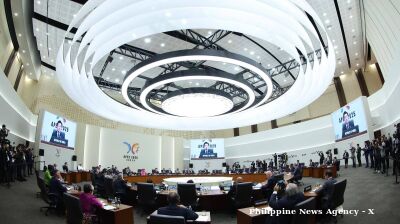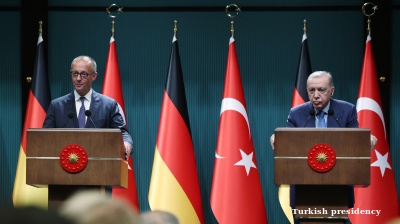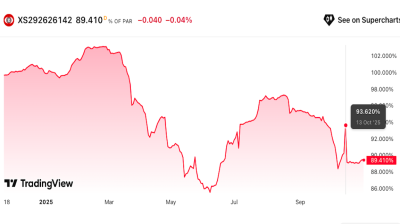Russia is expected to lose at least $50bn annually due to oil-related sanctions, as Moscow’s largest private oil producer Lukoil agrees to sell its international assets and Germany considers nationalising operations owned by state-run Rosneft.
Ukrainian President Volodymyr Zelenskiy said the projected losses align with estimates from Western partners, amounting to roughly $5bn per month. He added that he expects further tightening of restrictions, citing market stability in global oil supply. “There is no shortage of supply,” Zelenskiy said, referring to the impact of sanctions on Russian exports.
Following the imposition of new tough oil sanctions by the Trump administration on October 22, privately-owned Russian oil major Lukoil has agreed to divest its foreign operations to Gunvor Group, a commodities trading company with long-standing ties to Russia. The deal includes Lukoil International GmbH, headquartered in Vienna, which oversees more than 100 subsidiaries across 50 countries. The transaction also involves Litasco, a trading arm based in Geneva and Dubai.
Gunvor, which was previously linked to Russian President Vladimir Putin, was the subject of a 2014 statement by US authorities alleging that Putin had investments in the company. While Gunvor denied the claims, the announcement renewed scrutiny over the firm's connections in Russia’s energy sector.
Gunvor Group is one of the world’s largest independent commodity trading companies, specialising primarily in energy markets, particularly the trading of crude oil and refined petroleum products. The company also has growing interests in natural gas, liquefied natural gas (LNG), and power trading, along with investments in logistics and infrastructure such as pipelines, refineries, and storage facilities.
It was founded in 2000 by Swedish oil trader Torbjörn Törnqvist and Russian businessman Gennady Timchenko, a close Putin ally from his days in St Petersburg. In the early 2000s Guvnor rose to prominence by facilitating oil exports from Russia and other former Soviet states, eventually expanding globally. From its Kremlin-friendly days, Gunvor has in recent years tried to distance itself from Russia and diversify.
In 2014, just before the US imposed sanctions on Timchenko, formerly Putin’s judo sparring partner, he sold his 43% stake in Gunvor to Törnqvist. This sale was reportedly completed the day before the sanctions took effect.
Since then, Törnqvist has been the majority and controlling shareholder of the group, holding more than 85% of the company as of recent public information.
Today Gunvor is headquartered in Geneva, Switzerland, with trading offices around the world, including Singapore, Dubai, London, and Houston. The company also owns physical assets such as oil terminals and refineries, which help support its trading operations.
Gunvor is privately held and does not disclose detailed financials, but in 2022, it reported revenue of around $150bn, driven by high energy prices amid geopolitical tensions and supply disruptions.
Trump’s oil sanctions have constrained the operations of companies like Lukoil, compelling them to retreat from key foreign markets. However, as bne IntelliNews reported, the effect on oil export volumes is expected to be limited and temporary.
Simultaneously, discussions have re-emerged in Germany over the possible nationalisation of Rosneft’s local assets, including the Schwedt refinery near Berlin, a major refinery that supplies the majority of the German capital’s fuel needs. According to Russian media, Rosneft’s German operations are valued at approximately $7bn, although Western officials believe the actual figure could be significantly higher.
The Ukrainian government and its allies continue to push for more comprehensive sanctions against Russia's energy sector, arguing that current measures are beginning to erode the Kremlin’s revenue base.
News

US–China soybean sales restart
According to Scott Bessent, US Treasury Secretary, the agreement marks a significant step towards restoring normalcy for American farmers.

Chicken and chips in Seoul - for Nvidia, Samsung and Hyundai
In a low-key fried chicken shop in southern Seoul, the leaders of Nvidia, Samsung Electronics and Hyundai Motor held an informal meeting on the evening of October 30.

Presidents Lee and Xi begin diplomatic chapter at APEC summit
President Lee, who is chairing the first session of the summit at the Hwabaek International Convention Centre, stood at the entrance to personally welcome participants. President Xi reached the venue at approximately 10:02.

South Korea opens APEC summit focusing on connectivity and growth
South Korean President Lee Jae Myung chaired the opening session of the Asia Pacific Economic Cooperation (APEC) Leaders’ Meeting on the morning of October 31 in Gyeongju, North Gyeongsang Province.




